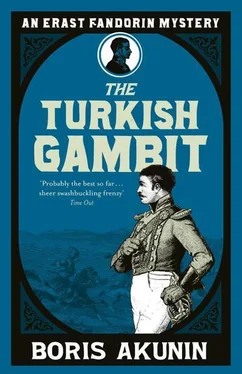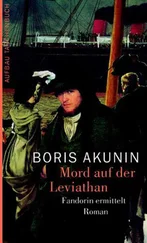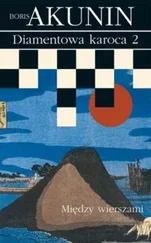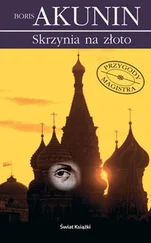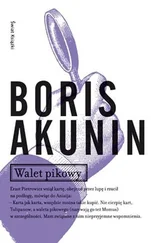Paladin did not respond. He was watching the titular counsellor carefully, as if he were waiting for something.
'Ali-bei's appearance in Plevna was necessary in order to clear the journalist Paladin of the suspicion caused by that ill-starred interview. I have no doubt, indeed, that Anwar used that month to great advantage to himself: no doubt he reached agreement with Osman-pasha on joint plans of action for the future and acquired some reliable contacts. After all, our counter-intelligence operations did not prevent correspondents from having their own informants in the besieged town. If he wished, Anwar-effendi could even have visited Constantinople for a few days, since Plevna was still not cut off from the lines of communication. It would have been very simple - once he reached Sophia, he could have got into a train and the next day he would have been in Istanbul.
'The third assault was especially dangerous for Osman-pasha, above all because of Mikhail Dmitrievich's surprise attack. But luck was with Anwar and not with us. We were confounded by a fatal coincidence: on his way to headquarters Zurov galloped past the correspondents and shouted out to them that you were in Plevna. Naturally Anwar realised the significance of this statement perfectly well, and also the reason why Zurov had been despatched to command headquarters. Somehow he had to gain time, give Osman-pasha a chance to regroup and dislodge Mikhail Dmitrievich and his small detachment from Plevna before reinforcements arrived. And yet again Anwar took a risk and improvised. Boldly, brilliantly, creatively. And, as always, mercilessly.
'When the journalists heard about the successful incursion on the southern flank they all went dashing to their telegraph apparatuses, but Anwar set off in pursuit of Zurov and Kazanzaki. On his famous mount Yataghan he overhauled them with no difficulty and once they reached a deserted spot, he shot them both. Evidently, when he attacked he was galloping along between Zurov and Kazanzaki, with the captain on his right and the gendarme on his left. Anwar shoots the hussar in the left temple, at point-blank range, and a moment later despatches a bullet into the forehead of the lieutenant-colonel, who has turned towards him at the sound of the shot. The whole thing took no more than a second. There were troops moving all around, but the horsemen were riding along a depression,- no one could see them and the shots could hardly have attracted attention in the middle of an artillery bombardment. The killer left Zurov's body lying where it was, but thrust the gendarme's dagger into its shoulder. In other words, first he shot him, and then he stabbed him when he was already dead, and not, as we initially believed, the other way round. Anwar's intent is clear: to cast suspicion on Kazanzaki. For the same reason he moved the lieutenant-colonel's body to the nearest bushes and staged the suicide.'
'But what about the letter?' Varya reminded him. 'From that - what was his name? - Shalunishka?'
'A magnificent ploy,' Fandorin acknowledged. 'Turkish intelligence had evidently been aware of Kazanzaki's unnatural inclinations since his old days in Tiflis. I presume that Anwar-effendi kept an eye on the lieutenant-colonel, bearing in mind the possibility of resorting to blackmail at some time in the future. When events took an unexpected turn, he used the information to good effect to throw us off the scent. Anwar simply took a blank sheet of paper and dashed off a caricature of a letter from a homosexual lover. But he rather overdid it, and even at the time I thought the letter seemed suspicious. In the first place, it is hard to believe that a Georgian prince could write such abominable Russian - he ought at least to have received a grammar-school education. And in the second place, perhaps you recall my asking Lavrenty Arkadievich about the envelope and learning that the letter had been lying in the dead man's pocket unprotected? But in that case, how could it have remained so clean and crisp when Kazanzaki must have been carrying it around with him for an entire year?'
'This is all very fine,' Mizinov said impatiently, 'and this is the second time in the last twenty-four hours that you have expounded your ideas on this matter to me, but I ask you once again: Why were you so secretive? Why did you not share your doubts earlier?'
'If one rejects one explanation, one must propose another, and I simply could not make all the pieces fit together,' replied Erast Petrovich. 'My opponent employed far too wide a range of devices. I am ashamed to admit it, but for a while my main suspect was Mister Perepyolkin.'
'Eremei?' Sobolev exclaimed in astonishment, throwing his hands up in disbelief. 'Come now, gentlemen, this is sheer paranoia.'
Perepyolkin himself blinked several times and nervously unbuttoned his tight collar.
'Yes, it is stupid,' Fandorin agreed, 'but whichever way we went, we kept tripping over the lieutenant-colonel. Even the way he made his first appearance seemed rather suspicious - the miraculous liberation from captivity, the failed shot at point-blank range. The Bashi-Bazouks usually shoot better than that. And then the business with the coded message - it was Perepyolkin who delivered the telegram with the order to attack Nikopol to General Kriedener. And who was it that egged on the credulous journalist Paladin to sneak into Plevna under the very noses of the Turks? And the mysterious letter "J". Thanks to Zurov's easy wit, everyone had begun to call Eremei Ionovich "Jerome". That is on the one hand. On the other hand, you must admit that Anwar-effendi's cover was ideal. I could construct any number of logical hypotheses, but the moment I looked at Charles Paladin, all my arguments crumbled to dust. Just take a look at this man.' Fandorin pointed to the journalist. Everybody looked at Paladin, who bowed with exaggerated humility. 'How is it possible to believe that this charming, witty, thoroughly European gentleman and the perfidious, cruel head of the Turkish secret service are one and the same person?'
'Never, not for the world!' declared Sobolev. 'And even now I don't believe it!'
Erast Petrovich nodded in satisfaction. 'And now for the business with McLaughlin and the failed breakout. In this case everything was very simple, with no risk. It was not difficult to interest the gullible Seamus in a piece of "sensational" news. No doubt the informer he concealed from us, and of whom he was so proud, was working for you, Effendi.'
Varya shuddered at hearing that form of address used to Charles. No, there must be something wrong here. What kind of 'effendi' was he!
'The way you exploited McLaughlin's trusting nature, as well as his vanity, was very clever. How envious he was of the brilliant Charles Paladin, how he dreamed of outshining him! So far he had only managed to beat him at chess, and then not every time; but now he had this fantastic stroke of luck! Exclusive information from most reliable sources! And what incredible information it was! For information like that any reporter would sell his very soul to the devil. If McLaughlin had not happened to meet Varvara Andreevna on his way and blurt out his secret to her . . . Osman would have swept aside the corps of grenadiers, broken out of the blockade and fallen back to Shipka. And then the situation on the front would have been stalemate.'
'But if McLaughlin is not a spy, what has become of him?' asked Varya.
'Do you recall Ganetsky's story of how the Bashi-Bazouks attacked his command headquarters and the ageing general barely managed to escape with his life? I think it was not Ganetsky that the saboteurs wanted, but McLaughlin. He had to be eliminated, and he disappeared. Without trace. Very probably the deceived and much-maligned Irishman is lying somewhere at the bottom of the River Vid with a stone round his neck. Or possibly the Bashi-Bazouks, following their usual charming custom, hacked him to pieces.'
Читать дальше
